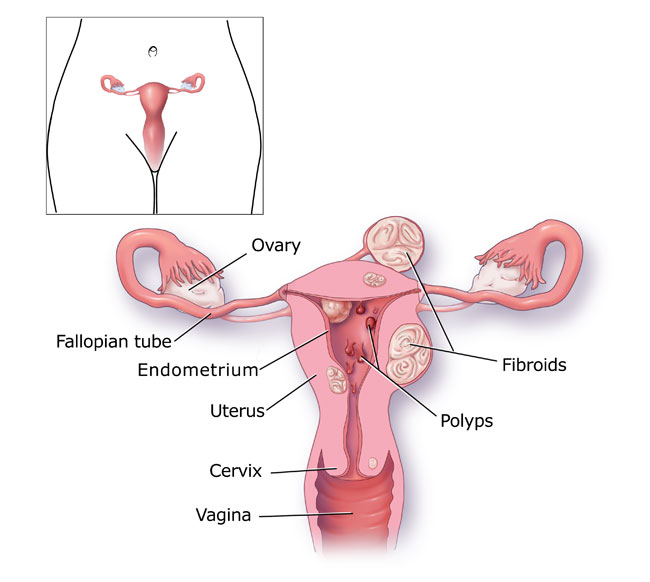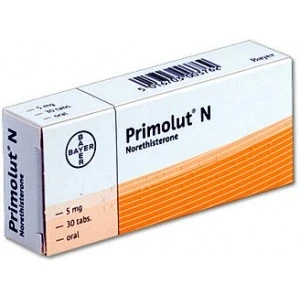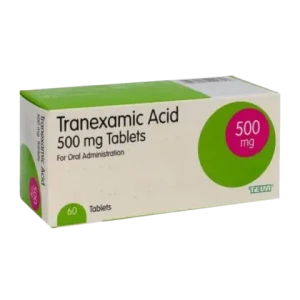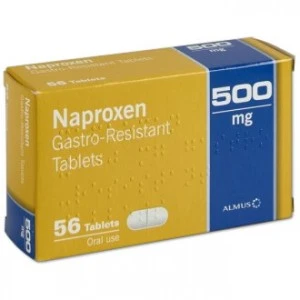How To Stop Heavy Periods
Heavy periods, also known as menorrhagia, can be painful, make you feel miserable and interfere with your day-to-day life.
Some women may find relief from heavy period pains by taking paracetamol or other pain relief treatments such as Ibuprofen or Naproxen. However, if your periods are stopping you from your normal daily routine, you should speak to your doctor about other possible treatments you can have.
What Causes Heavy Periods In The First Place?
 Sometimes, there is no obvious underlying reason for heavy periods. However, in some cases, several health conditions can cause heavy menstrual bleeding, including:
Sometimes, there is no obvious underlying reason for heavy periods. However, in some cases, several health conditions can cause heavy menstrual bleeding, including:
Fibroids
These are non-cancerous growths that develop in or around the womb.
Endometriosis
This is where the tissue that lines the womb (endometrium) is found outside the womb, such as in the ovaries and fallopian tubes.
Underactive thyroid (hypothyroidism)
This can make your womb lining thicker than usual, causing heavy bleeding when it sheds during your period.
Adenomyosis
This is when tissue from the womb lining becomes embedded in the wall of the womb.
Pelvic inflammatory disease (PID)
This is an infection in the upper genital tract (the womb, fallopian tubes or ovaries) that can cause symptoms like pelvic or abdominal pain, bleeding after sex or between periods, vaginal discharge and a high temperature.
Endometrial polyps
These are non-cancerous growths in the lining of the womb or cervix.
Endometrial cancer
The most common symptom is abnormal bleeding, especially after the menopause.
Polycystic ovary syndrome (POS)
This condition affects the way the ovaries function and causes irregular menstrual periods. When periods resume, they may be heavier than usual.
It is recommended to speak to your doctor if you have noticed a change in your periods, such as bleeding more than usual, experiencing more pain than usual or noticing blood clots in your period.
Treatments For Heavy Periods
The type of treatment depends on what is causing you to have heavy periods and your overall health.
The treatment options include medicines and medical devices, as well as non-surgical and surgical treatments. Here, we will break down these options, explaining what they are and how they work to relieve your heavy and painful periods.
Medicines
Your doctor may recommend or prescribe a medicine to treat your heavy periods. They may suggest or prescribe a treatment, such as Tranexamic Acid 500mg or Norethisterone. Speak to your doctor before buying any medicine, or consult our online clinicians for further advice.
Primolut N 5mg
- 7 & 14-day courses available
- Regulates the menstrual cycle
- Mimics natural progesterone
Medicines without hormones
For example, tranexamic acid or non-steroidal anti-inflammatory drugs (NSAIDs).
Tranexamic Acid 500mg
Rated 0 out of 5 based on 0 reviewsRated 0 out of 5 based on 0 reviews- Reduces Heavy Menstrual Bleeding
- Non-Hormonal Convenience
- Versatile Usage
Naproxen 250mg & 500mg Tablets
Rated 5.0 out of 5 based on 4 reviewsRated 5.0 out of 5 based on 4 reviews- Used to provide pain relief
- Nonsteroidal anti-inflammatory
- For easing moderate to severe pain
Tranexamic acid is used to prevent major blood loss. It works by thickening (clotting) the blood to prevent it from flowing as freely. As a result, menstrual bleeding is slowed down. This treatment is only available on prescription and should be discussed with your doctor.
NSAIDs are often used to treat pain. They block a hormone in your body called prostaglandin, which is created in the lining of your uterus at the start of your menstrual cycle. During menstruation, prostaglandins are released from cells in the uterine lining and take effect, constricting the blood vessels and contracting the muscles surrounding the uterus to facilitate the shedding of the endometrium. It is this contraction which causes the pain.
Medicines with hormones
e.g. the combined oral contraceptive pill or progestogen tablets, such as the mini pill.
Contraceptive pills are typically used to prevent unwanted pregnancy, but they can also help to regulate the menstrual cycle. While taking the contraceptive pill, periods may become more regular, lighter and less painful. There is a range of different contraceptive pills available, so it's best to discuss your options with your doctor.
Devices
An intrauterine system (IUS)
This is a small device inserted into your womb which releases the hormone progestogen. While it is primarily used as a contraceptive, it can also help to regulate periods, making them lighter and less painful, much like a contraceptive pill.
It's essential to note that an intrauterine system (IUS) differs from an intrauterine device (IUD). An IUD is a copper device which does not secrete hormones, while an IUS releases a progestogen hormone. For more information about IUDs and IUSs, it is best to speak to your doctor or a sexual health nurse.
Non-surgical treatment
If fibroids cause your heavy periods, there is a non-surgical procedure which is used to shrink the size of the growths called a uterine artery embolisation.
As the name suggests, it involves purposely obstructing a blood vessel around the uterus to reduce the blood supply to the fibroids. The procedure involves inserting a catheter, usually under local anaesthetic, into the uterine artery and injecting small particles to block the blood supply.
By starving the fibroids' blood supply, the growth shrinks, and the symptoms subside.
Surgical treatment
Endometrial ablation
This is a procedure to remove the lining of the womb.
Myomectomy
The surgical removal of fibroids.
Hysterectomy
This is a surgery to remove the womb completely. You'll no longer be able to become pregnant after you have this procedure.
Remember, the treatment options depend on any existing health conditions, your age, the type of abnormal bleeding you are experiencing and how long you are bleeding. You should discuss the available treatments openly with your doctor to determine the best course of action for you.
How Do I Know My Periods Are Heavy?
It can be difficult to establish if your periods are normal or heavy. Every woman is different, so how would you know your menstrual bleeding is heavy? Over time, you will recognise how much blood you lose during your periods by the number of tampons or sanitary pads you go through. If you notice any of the following changes, it would be an indication that your period is heavy:
- You are bleeding a lot more than usual.
- You are bleeding for more days than usual.
- You are bleeding through your clothes or bedding.
- You have noticed large blood clots in your period.
- You need to use more tampons/sanitary pads.
- You need to use two sanitary products simultaneously.
- Your period pains are lasting longer than usual and are more intense.
The first step when you notice heavy periods is to consult your doctor. Your period is unique to you, so the type of treatment you are advised will be linked to your medical history.
Remember, heavy bleeding during your period is nothing to be ashamed of. Around a third of women in the UK aged 30-49 get heavy periods. If you think your periods are heavy, speak to your doctor before you start any type of treatment. They can discuss your individual options and advise on which route is best for your body.
References
NHS, 2018. Heavy periods.
NICE, 2010. Uterine artery embolisation for fibroids, Chapter 2, The Procedure.
Additional Information
© 2013 - 2026 Al Muhsineen Limited. All Rights Reserved. Registered Pharmacy: 34 Halliwell Road, Bolton BL1 8RL. Registered Office: 254 First Floor, Shearbrow, Blackburn, England, BB1 8DS








